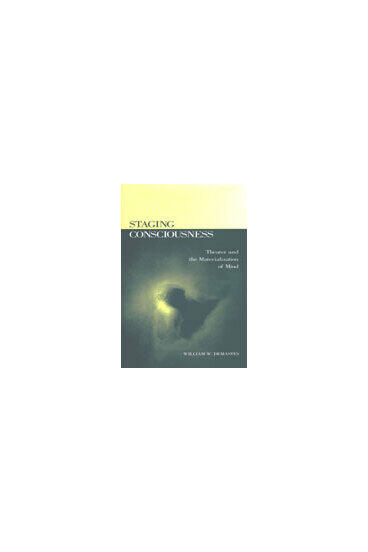Staging Consciousness
Theater and the Materialization of Mind
How theater has challenged the mind/body dualism that underpins much of Western thought
Description
Staging Consciousness argues that theater is a living invalidation of the Western dualism of mind and body, activating human consciousness through its embodiment of thought in performance. While consciousness theory has begun to find ways to bridge dualist gaps, Staging Consciousness suggests that theater has anticipated these advances, given the ways in which the physical theater promotes nonphysical thought, connecting the two realms in unique and ingenious ways.
William W. Demastes makes use of the writings of such varied theater practitioners as Antonin Artaud, Jerzy Grotowski, Samuel Beckett, Tony Kushner, Sam Shepard, Spalding Gray, Peter Shaffer, and others, illuminating theater as proof that mind is an extension of body. The living stage incubates and materializes thought in a way that highlights the processes of daily existence outside the theater. This book offers a new way for theater practitioners to look at the unique value of the theater and an invitation for philosophers and scientists to search for new paradigms in theater, the oldest of art forms.
William W. Demastes is Professor of English, Louisiana State University. His previous books include Theatre of Chaos: Beyond Absurdism, into Disorderly Order.
William W. Demastes is Professor of English at Louisiana State University. His previous books include Theatre of Chaos: Beyond Absurdism, into Orderly Disorder and Clifford Odets.

